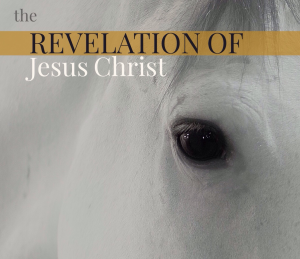Finally, the Israelites are ready to head out, leaving Sinai with the presence of YHWH Himself leading the way. First, a matter of organization. This is a large camp, remember, so the odds of being able to direct folks easily by just shouting about the place seem pretty low. So, a couple of trumpets are commissioned.
There are a number of different reasons the trumpets will be used. When all people are to gather at the Tent of Meeting, the two trumpets are blown together using a long blast. When just the leaders of the camp are needed for the gathering, only one trumpet is used. They are also used when it’s time to head out following the cloud. When an “alarm” is blown (likely a short blast), the camps on the east side know it’s time to head out. When another alarm follows, the south side heads out (and so on, in the order dictated in chapter 2). In this very regimented and orderly evacuation of Sinai, we are perhaps reminded of the disorderly and outright disobedient conduct that occurred when they first arrived here and Moses tarried on the mountain while meeting with YHWH. God’s laws, calls to holiness, and blessing are sandwiched in between scenes of idol-making calf worship and a regimented, obedient army.
Speaking of which, they are also to blast the trumpets when they head into battle once they received the promised land “…so that you may be remembered by YHWH your God, and you shall be saved from your enemies.” Trumpets are associated with not only calls to worship but to pronouncements of battle. In that light, we shouldn’t take this instruction to mean that YHWH will not literally remember His people if they don’t blast a trumpet, but instead that this blowing of this trumpet is a declaration of asking for God to be with them as they battle, an invitation for Him to respond. And the promise is that He will. Finally, at the feasts, the parties, the gatherings, the peace and sacrifice offerings and any other times of gladness, it’s good to go ahead and fire up the trumpets. The reasons aren’t really different here than the aspects of calls to gather and calls to battle. Ultimately they remind God’s people of His presence and the need for his being active and among them in that moment. And God agrees that it will do that very thing as He affirms that He is indeed their God.
Then it begins. It’s the 20th day of the second month of the second year (I assume so everyone who missed the Passover had time to make it up given the provisions of the previous chapter). The cloud moves, and the people head out. Again, the order is predetermined and they follow it. This section lacks some clarity on where the Kohathites travel as they are expected to go after the second group of tribes but we are also told the Ark of the Covenant travels ahead of the camp. The most reasonable resolution is that some of the Kohathites take the Ark ahead of everyone and the rest of them travel where they are expected to.
Moses asks Hobab, (who may be his brother in law but may also be a name for Jethro, his father in law), to go with them on this journey to help them find good places to camp. This is confusing. Isn’t YHWH leading this operation? Why would you ask your brother in law to find good places to stop when you’re supposed to be following the cloud and fire until it stops moving? Moses’ underlying motivation is unclear and the reaction of Hobab is also unclear. His response is first to say that he intends to go home and then Moses makes sure that he is aware that he will receive the same blessings as Israel receives if he comes along. Ambiguously, Hobab’s response is not recorded here. Judges 1 says that some descendants of Hobab help the tribe of Judah in the conquest of some of the land, but that’s another 40+ years out from this event so it’s not clear that their presence in that story is to be read as Hobab actually staying here (and to the extent that the text doesn’t make it clear I’m not sure it particularly matters).
Digression over, we’re back to leaving. The cloud goes, but it says that the ark goes in front of the people by 3 days but that the people follow the cloud. It’s not quite clear what is happening here. The best option seems to be the cloud moves, the Kohathites with the ark follow, they are ahead by 3 days and the people follow (of which it is unclear whether the cloud is also with the people or just with the ark, or both). Moses ends the chapter with a prayer, a call to YHWH to scatter their enemies that are in front of them and to return His presence among them when they stop. Sometimes we feel weird praying things like this, as if we’re bossing God around. Moses doesn’t seem to have an issue with it and we shouldn’t either. It’s good for us to pray that God keep His promises, it is an affirmation of faith in His character and request that we might see His hand as He does them.
